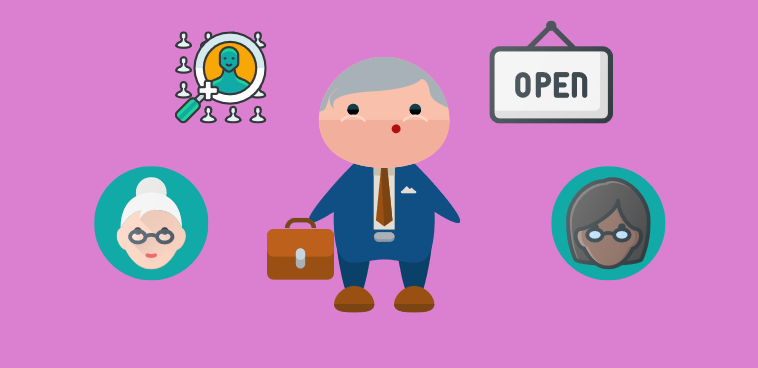Sign up for SmartBrief on Leadership today, free.
Lead Change is a leadership media destination with a unique editorial focus on driving change within organizations, teams, and individuals. Lead Change, a division of Weaving Influence, publishes twice monthly with SmartBrief. Today’s post is by Bonnie Marcus.
As leaders in business, we are all aware of different types of implicit bias and the threat that discrimination brings to our organizations. We understand the business case for a more diverse and inclusive workplace. We strive to improve the culture so that our employees and our business will thrive.
But as we look at all the “isms,” there is one that is easily overlooked: ageism. And it’s funny in a way, because it’s the one that we all have in common, regardless of our race, gender, religion or educational background. We are all aging, and yet we all seem to believe that in the workplace, especially, aging is a bad thing.
A 2018 AARP survey found that ageism is widespread in our workplaces. They found nearly 25% of workers age 45 and older have been subjected to negative comments about their age from supervisors or co-workers. And about 60% of older workers have seen or experienced age discrimination in the workplace.
I think it’s foolish to say that we all don’t hold a few of the common beliefs about aging. Some of these common assumptions are that people over 50 aren’t promotable, don’t have the energy or stamina to work, or can’t learn new skills. All of these beliefs have been proven false by research, yet we continue to accept them as the truth.
As leaders, we need to examine our own ageist beliefs to determine how they affect our behavior and actions, and hold ourselves accountable. Personally, I just wrote a book on the topic of gendered ageism and how women suffer because of society’s emphasis on youth and appearance. But I need to confess that through the process of writing this book, I’ve faced the uncomfortable discovery of my own ageism.
We are all a product of our society and the subtle, and maybe not so subtle, messages about aging. New research reveals that our implicit bias is based on the culture where we live. Individualistic countries such as the US, Germany, Ireland, South Africa and Australia tend to stress independence and have greater age biases, and are more focused on maintaining active, youthful appearances.
Countries that stress group harmony such as Japan, China, Korea, India and Brazil have much less of a bias toward older people than individualistic countries. Within the US, you are more prone to ageism if you live in the Northeast or Southeast.
We need to realize that these ageist beliefs are so ingrained in our culture that it’s hard to not assimilate them, especially here in the US. We can give ourselves a pass on that.
But then it’s our responsibility to identify the ageist assumptions and stereotypes we hold and challenge them to ensure that they don’t affect company policies regarding hiring, firing, promoting and compensating our employees. It’s our responsibility to lead by example and determine whether the culture favors younger workers to the detriment of its more mature and seasoned employees.
Do an assessment of your company policies. For example:
- Are your hiring practices ageist? What about firing? Take a deep dive.
- Include ageism and gendered ageism in your unconscious bias training.
- Showcase senior employees for their achievements to nurture respect.
- Facilitate cross-generational networking and mentoring for mutual benefit.
- Hold accountable managers and employees who have shown ageist behavior, and create a safe environment for all employees to discuss their challenges without repercussions.
Remember, if we’re lucky, we’re all aging. We need to honor the wisdom and experience of our senior employees, and take advantage of their expertise, just as we need to acknowledge the knowledge we have gained over the course of our own careers so far.
Bonnie Marcus M.Ed, CEC, is a certified coach, speaker, host of the podcast Badass Women at Any Age, and author of “The Politics of Promotion: How High Achieving Women Get Ahead and Stay Ahead.” Her latest book, “Not Done Yet! How Women Over 50 Regain Their Confidence and Claim Their Workplace Power,” published this month.
If you enjoyed this article, sign up for SmartBrief’s free e-mails on leadership, business transformation and HR, among SmartBrief’s more than 200 industry-focused newsletters.
